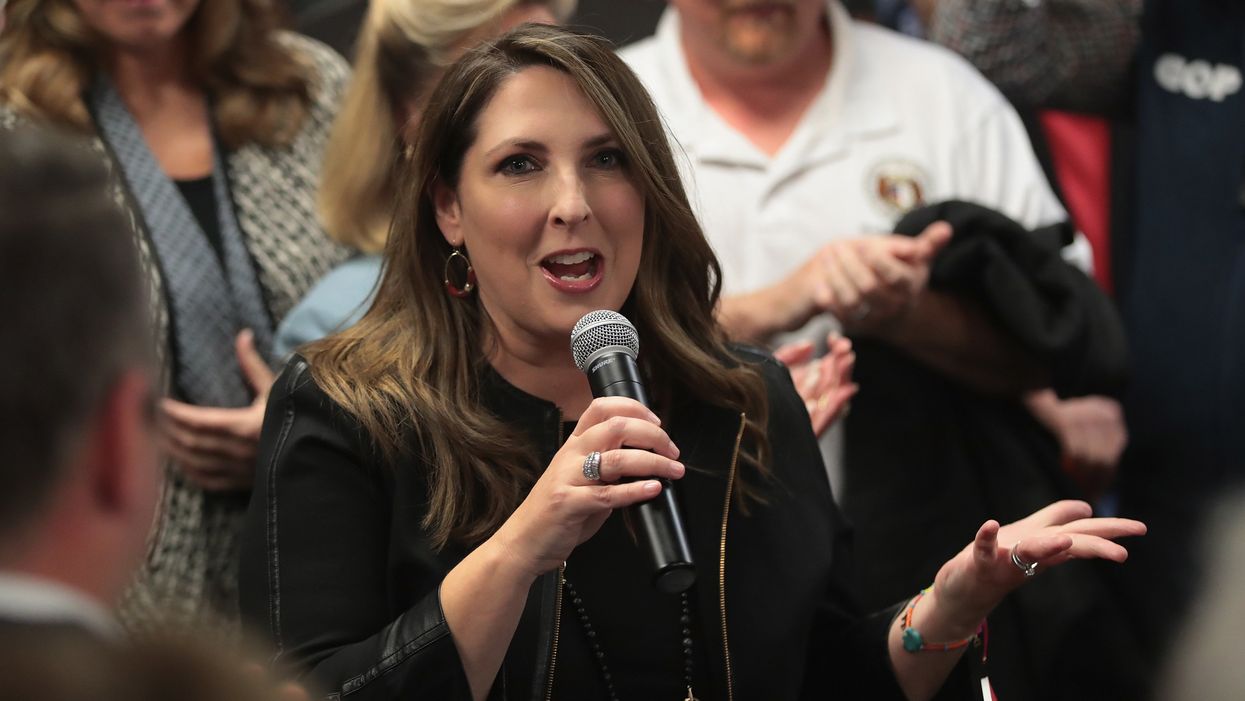The presidential race, the battle for dominance in Congress and contests for control of statehouses across the country will ultimately be determined in the ballot box. But a battle joined this week in another arena, the courtroom, could have a major impact on those results.
The Republican National Committee and President Trump's re-election campaign announced Thursday they will be spending at least $10 million attempting to repel a series of voting rights lawsuits the Democrats have filed in battleground states from coast to coast.
The vow suggests a pitched dollar-for-dollar legal battle that could shape the turnout, and thereby the outcome, in dozens of contests. A month ago the Democrats said they would spend at least $10 million pressing their allegations that all manner of election laws in purple states are unconstitutional or violate federal law.
The Democrats are "trying to rig the game with frivolous lawsuits," Ronna Romney McDaniel, chairwoman of the Republican National Committee, declared in announcing the counterattack. "These actions are dangerous, and we will not stand idly by while Democrats try to sue their way to victory in 2020."
The actions she is referring to are the nearly two dozen lawsuits filed in a dozen states by lawyers representing the Democratic Congressional Campaign Committee, the Democratic Senatorial Campaign Committee, state Democratic parties and other party-affiliated groups.
An additional 12 to 16 lawsuits are expected to be filed by Democrats before Election Day, spending tens of millions of dollars more.
The most recent suit, filed last month in Minnesota, seeks to overturn a limit on the amount of help one person may give to others in casting their ballots. In 2016 Trump came within 2 percentage points of becoming the first GOP nominee to win the state since 1972.
Minnesota is also one of several states where Democrats have sued to overturn laws that dictate the order of candidates on the ballot. In Minnesota, the candidates are listed in reverse order of the previous election, which would place GOP names first on this November's ballot.
Democrats have already earned a handful of wins including in Florida, the nation's most populous purple state, where the federal court struck down the state law giving preferential ballot placement to the same party as the governor, who has been a Republican since 1999.
Another victory came in South Carolina where officials agreed last month to drop a requirement that complete Social Security numbers be provided on voter registration forms.
Several lawsuits have targeted voter ID laws that they argue discriminate against students and minority voters.
The first legal action by the GOP came this week in Michigan, where the RNC and the state Republican Party have been allowed to intervene in a lawsuit filed by the Democratic-aligned super PAC Priorities USA. The suit challenges state laws that prohibit political organizers from helping voters submit absentee ballot applications and bar groups from hiring people to transport voters to the polls.




















Trump & Hegseth gave Mark Kelly a huge 2028 gift